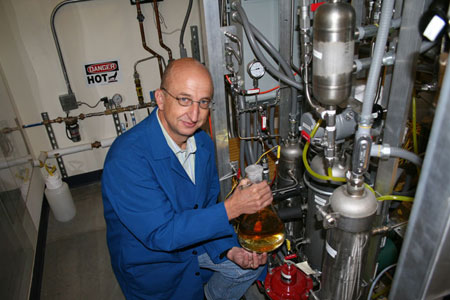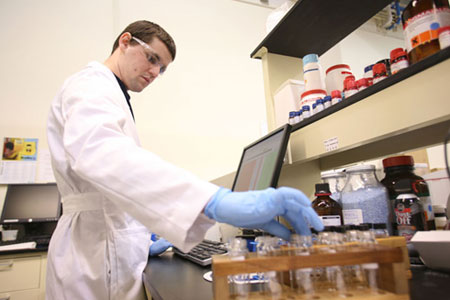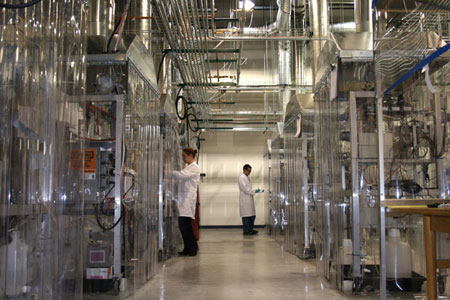Advertisement
Grab your lab coat. Let's get started
Welcome!
Welcome!
Create an account below to get 6 C&EN articles per month, receive newsletters and more - all free.
It seems this is your first time logging in online. Please enter the following information to continue.
As an ACS member you automatically get access to this site. All we need is few more details to create your reading experience.
Not you? Sign in with a different account.
Not you? Sign in with a different account.
ERROR 1
ERROR 1
ERROR 2
ERROR 2
ERROR 2
ERROR 2
ERROR 2
Password and Confirm password must match.
If you have an ACS member number, please enter it here so we can link this account to your membership. (optional)
ERROR 2
ACS values your privacy. By submitting your information, you are gaining access to C&EN and subscribing to our weekly newsletter. We use the information you provide to make your reading experience better, and we will never sell your data to third party members.
Environment
Small Business Award
by Stephen K. Ritter
June 29, 2009
| A version of this story appeared in
Volume 87, Issue 26



Virent Energy Systems, Madison, Wisc., garnered the Small-Business Award for its BioForming process, an efficient aqueous-phase catalytic method to make biofuels and chemicals from plant sugars, starch, or cellulose. The technology, which is advancing to the pilot-plant stage, utilizes heterogeneous catalysts at moderate temperatures (80−400 °C) and pressures (up to 50 atm) in a collection of continuous parallel and tandem reactions—similar to those in an oil refinery (C&EN, Nov. 17, 2008, page 57).
In the BioForming process, the soluble carbohydrate feedstock is first hydrogenated to form sugar alcohols (polyols). The subsequent proprietary "aqueous-phase reforming" step converts the sugar alcohols to H2, CO2, C1-C4 alkanes, and a collection of C1-C6 alcohols, ketones, organic acids, and other compounds. In the final step, the C1-C6 compounds are upgraded to oxygen-free, fuel-blending hydrocarbons by using refinery condensation and hydrotreating techniques.
BioForming technology is flexible in that the process can be modified to generate gasoline, diesel fuel, or jet fuel, depending on market conditions. In addition, BioForming has several advantages over fermentation processes to make ethanol: It can use a mix of sugars and polysaccharides as the starting material, instead of a single sugar; from start to finish the process takes about one hour, compared with at least two days for batch fermentations; and the final hydrocarbons can be phase-separated from water, thereby avoiding energy-intensive distillation.
"Virent has proven that sugars can be converted into the same hydrocarbon mixtures of today's gasoline blends," emphasizes Randy D. Cortright, Virent's cofounder and chief technical officer. That makes BioForming a potential "game-changing technology" to help address global energy supply and environmental concerns, he says.




Join the conversation
Contact the reporter
Submit a Letter to the Editor for publication
Engage with us on Twitter